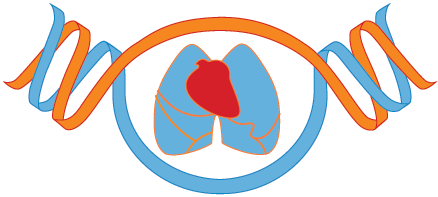- Get Started
- Centers
- Administrative Coordinating Center (ACC)
- Informatics Research Center (IRC)
- NIH
- Omics Centers
- Baylor Human Genome Sequencing Center
- Baylor-UTHealth Metabolomics Center
- Broad Institute Genomics Platform
- Broad Institute Metabolomics Platform
- Broad Institute and Beth Israel Proteomics Platform
- Illumina
- Keck MGC
- New York Genome Center Genomics
- Northwest Genomics Center
- New York Genome Center RNA-seq
- Psomagen
- Projects/Studies
- Working Groups
- Data
- Publications
- EEP
- ELSI
- Workshops
TMF: Defining genetic determinants of the hematopoietic stem cell single-base substitution signature
Principal Investigator: Luther Alex Liggett, PhD
Project Title: Defining genetic determinants of the hematopoietic stem cell single-base substitution signature
Abstract: Mutation is the source of all genetic variation and the substrate on which evolution acts. Yet most mutations will be disadvantageous, so as organisms evolve, mutation rate tends to undergo negative selection (Kimura, 1967, 1968). Differences in the strength of this negative selection have resulted in diverse germline mutation rates between species (Lynch, 2010) and even within species, including humans (Harris, 2015). Despite this observation, only one naturally occurring mutator allele has been discovered, leaving it unclear what genes are the target of mutation rate selection (Sasani et al., 2022). As with germline mutation rate, somatic mutation rate is also subject to selection, and varies across species (Milholland et al., 2017). However, in part, due to the difficulty in identifying somatic mutations within whole genome sequencing (WGS) or whole exome sequencing (WES) data, variation within multicellular species, especially in humans is largely unexplored. Understanding how somatic mutation rates vary within the human population will both provide evolutionary insight into population histories, while also providing valuable information on how mutation rates can be controlled and what impacts this has on human aging and diseases such as cancer. I therefore propose to use whole genome sequencing data from TOPMed to search for variation within the somatic mutation rates of human hematopoiesis. I expect that the strength of negative selection against somatic mutation rates has historically differed across human populations, and that this has resulted in differences in the rates at which nucleotides mutate. I propose to characterize these differences in the hematopoietic somatic mutation rates across different human populations. I hope to then use this variation in a genome-wide association study (GWAS) in order to uncover the somatic mutator alleles that are used by evolution to adjust somatic mutation rates in humans. I envision that by understanding what variation exists in human somatic mutation rates and how this variation is genetically determined will help us learn about how different human populations balanced the beneficial and detrimental effects of mutation, and what effects these balances had on important factors in human health such as aging and cancer.
PI:
L. A. Liggett
Award Type:
TOPMed Fellowship
Start Year:
2022

